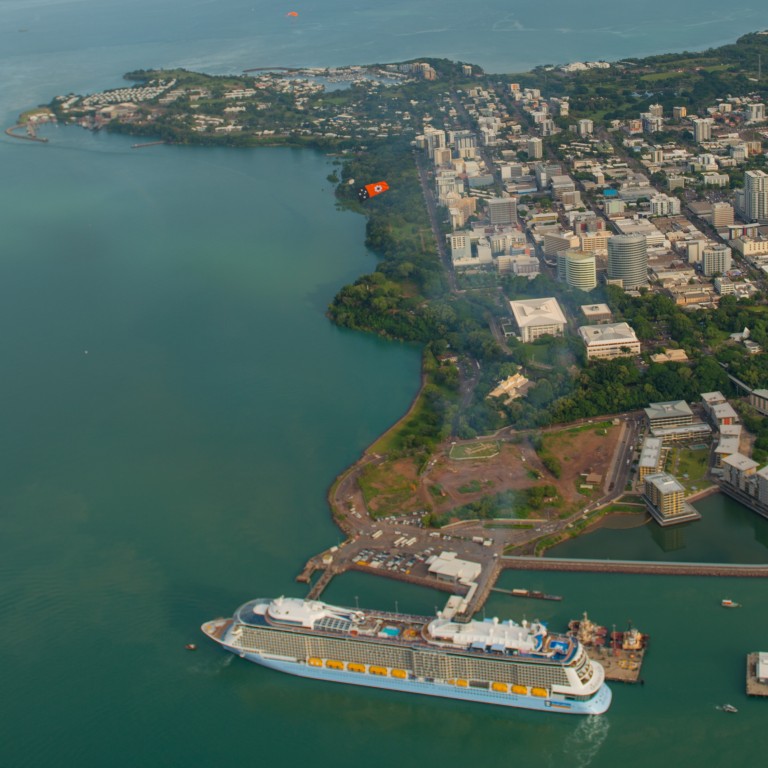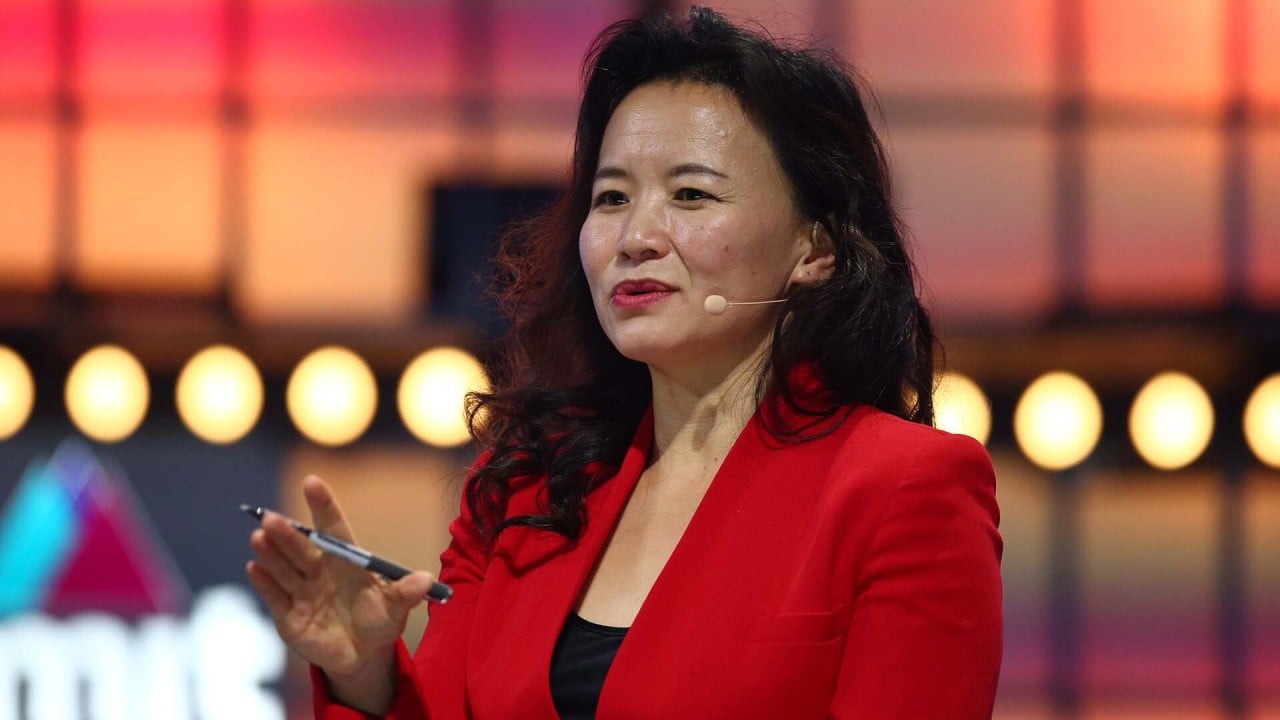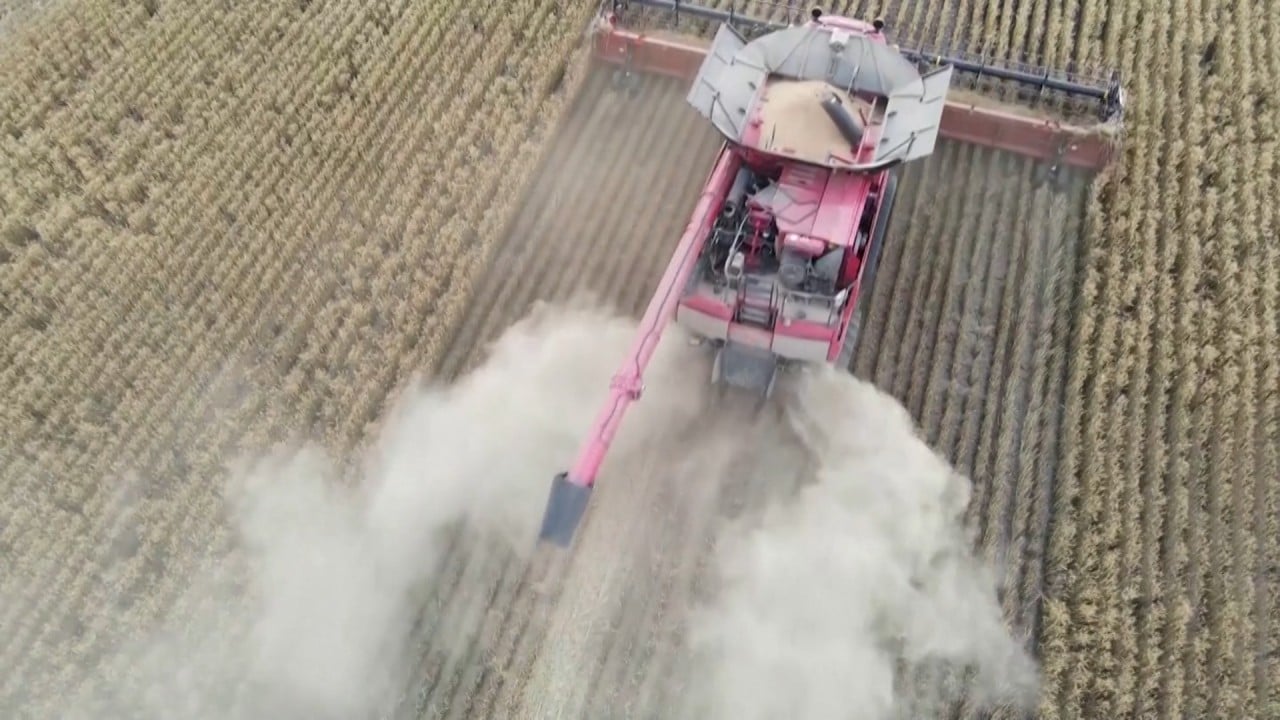
China-Australian relations: parliament panel calls for rethink over Port of Darwin lease
- Chinese company Landbridge was given a 99-year lease in 2015, but a parliamentary report suggested it should be reviewed under a new national security law
- Relations between Beijing and Canberra have come under increasing strain over the past year
An Australian parliamentary inquiry has called on the government to consider revoking the 99-year lease of the Port of Darwin to a Chinese company citing a new foreign relations law.
The decision to lease the port in 2015 caused controversy because it is also used as a base by the Australian and United States armed forces.
A report by parliament’s joint standing committee on trade and investment growth recommended that the Australian government should investigate whether the lease contravenes the new Foreign Relations Act.
The recommendation comes at a time when relations between the two countries have sunk to new lows over the past year after Canberra angered Beijing with a call last April for an investigation into the origins of the Covid-19 pandemic while Australian exports have been hit by a number of restrictions.
China-Australia barley dispute going to WTO after informal discussions fail
The Foreign Relations Act, passed in December, allows the federal government to block international agreements made by universities, councils and state governments on national security grounds without the prospect of appeal.
The act was passed following a controversy about a memorandum of understanding the state of Victoria signed to join Beijing’s Belt and Road Initiative, but some lawyers have criticised its “authoritarian-sounding” provisions.
The parliamentary committee’s non-binding report said: “There are recommendations that go to serious concerns regarding state-owned enterprises and state-linked enterprises funding our universities and owning or leasing our strategic infrastructure, including the port of Darwin.
“Given the ongoing tensions with China, it is an unacceptable national security risk to have Chinese state-owned and state-linked enterprises involved in our universities, including Confucius Institutes, and our strategic infrastructure.

01:51
Australian journalist Cheng Lei formally arrested in China for ‘illegally supplying state secrets’
“The committee has also put forward recommendations regarding the need for foreign investment to be in the national interest. Much foreign investment into Australia merely displaces Australian capital rather than growing the economy by creating new jobs and business opportunities for Australians.
“This is not investment that is in the national interest and is not considered by the bulk of the Australian population to be in the national interest.”
The report also recommended the government conduct a review of other ports or strategic infrastructure owned by, or leased to, foreign corporations under the new law.
The Northern Territory government leased the Port of Darwin to the Chinese company Landbridge for A$506 million (US$302 million at today’s exchange rates) in 2015. Aside from being a commercial port, it is also a base for Australian defence forces as well as US marines.
Landbridge – controlled by the Chinese billionaire Ye Cheng and connected to the Chinese Communist Party – took an 80 per cent stake in the land and has full control of the port’s operations for 99 years.
Miner BHP makes another anti-pollution deal with Chinese steel producer
The lease was exempted from a requirement that it be approved by the Foreign Investment Review Board, although the rules on foreign ownership were tightened last March.
At the time it was speculated that the change was targeted at Chinese investors, prompting Beijing to warn Australia to be “fair and non-discriminatory”.
Since the changes, the review board and the country’s treasurer, who oversees the department, have stopped or failed to approve many major deals with Chinese companies, including China Mengniu Dairy’s proposed A$600 million acquisition of Japanese-owned and Australia-based company Lion Dairy & Drinks last August. Some similar deals involving Chinese firms have been given the green light, however.

01:15
China-Australia trade: Beijing set to ban nearly US$400 million worth of Australian wheat imports
The parliamentary report, which made 21 recommendations, also asked the Australian government to identify and secure new supply chains and warned against relying on a single market for critical goods such as liquid fuel.
The report also addressed concerns that universities were becoming financially dependent on Chinese students – and potentially vulnerable to influence by the Chinese government – by asking the federal government to mandate that universities publicly disclose funding from foreign state-linked bodies or individuals.
But interest from Chinese students has fallen since the start of the Covid-19 pandemic and amid increasing tensions between the two countries. The Chinese government has also warned students about the risks of racist attacks in Australia.
China-Australia education sector takes hit amid trade row, survey shows
The parliamentary committee was chaired by George Christensen, who called on Australia to take back land owned by Chinese firms as compensation for the economic damage caused by the coronavirus outbreak.
Last month, the National Party MP told parliament that the Queensland state government should terminate the lease of Keswick Island to Hong Kong-registered Chinese group China Bloom due to alleged environmental damage caused by the company’s development of a resort.
The lease was made by the private lease-owner of the island, Keswick Developments.
China Bloom said it has complied with the environmental regulations set out in the lease agreement.

